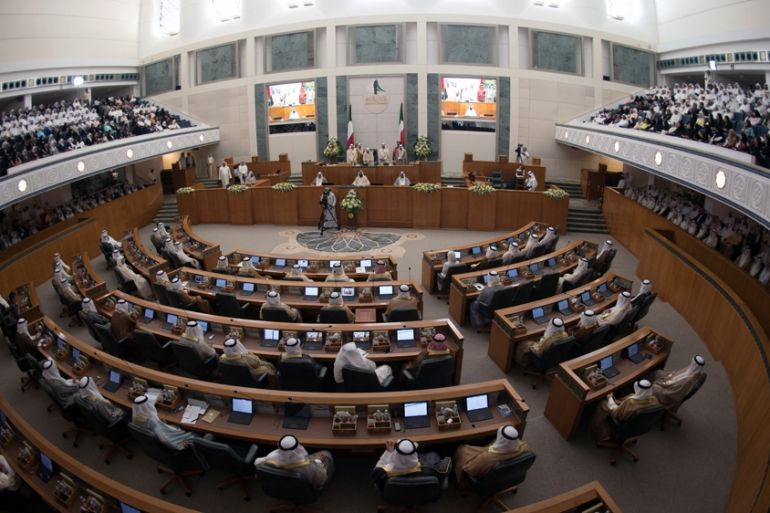Kuwait’s government submits resignation
Resignation comes after Kuwaiti legislators submitted a motion for a no-confidence vote against interior minister.

Kuwait‘s prime minister has submitted his cabinet’s resignation to the ruling emir of the Gulf Arab state, a government spokesman said.
The resignation on Thursday came after Kuwaiti legislators on Tuesday submitted a motion for a no-confidence vote against Interior Minister Sheikh Khalid al-Jarrah al-Sabah, who is a senior member of the ruling al-Sabah family.
Keep reading
list of 3 itemsKuwait reins in oil ambitions in rare climate acknowledgement
Kuwait ruler returns home from US after hospital treatment
Cabinet resignations in Kuwait happen frequently when elected legislators are set to question or submit a no-confidence vote against senior government officials.
Emir Sheikh Sabah al-Ahmad al-Jaber al-Sabah still has to accept the resignation in order for it to be final. He would then request a new cabinet to be formed.
Legislators had questioned Sheikh Khalid over alleged abuse of power, charges he rejected. The country’s public works minister resigned on Friday after being grilled by Parliament about flood damage in the desert country following heavy rainfall.
Kuwait, an ally of the United States and an OPEC producer, has the most open political system in the six-nation Gulf Cooperation Council (GCC), with a Parliament that has the power to pass legislation and question ministers.
The government is headed by a prime minister selected by the emir, who has the final say in state matters. Senior posts are occupied by ruling family members.
Frictions between the cabinet and Parliament have previously led to frequent reshuffles or the dissolution of Parliament.
Meanwhile, the Assembly Speaker Marzouq al-Ghanem told local news agency KUNA on Thursday that the emir does not intend to dissolve Parliament.